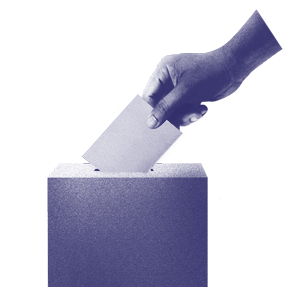
State of Ohio v. Urbanek (Amicus)
What's at Stake
Mr. Edward Urbanek’s conviction is inconsistent with federal voting rights. Specifically, the federal Help America Vote Act (HAVA) requires that states allow a voter to complete a provisional ballot when their registration status or eligibility cannot be verified immediately. Under the Ohio courts' interpretation, any voter who completes a provisional ballot and is ultimately found ineligible is “attempting” to vote unlawfully. That interpretation would defeat the purpose of HAVA and provisional ballots.
Summary
During the 2020 election, Edward Urbanek travelled to Summit County, where he had previously voted. Uncertain of whether that was his correct precinct, he asked poll workers to confirm that he was at the correct precinct. They were unable to do so and instructed him to fill out a provisional ballot, which Mr. Urbanek believed would not count as a vote. After filling out the provisional ballot, Urbanek traveled to the correct precinct, filled out a regular ballot, and voted. He was told by poll workers that he had only voted once. After the election, he was prosecuted and convicted for felony illegal voting under Ohio Revised Code § 3599.12.
The trial court held that §3599.12 creates a strict liability offense for attempting to vote more than once at the same election, including by provisional ballot. On appeal, the ACLU and ACLU of Ohio argued as amici in support of Mr. Urbanek that this reading of §3599.12 contradicts the federal Help America Vote Act (HAVA) and is thus preempted. Further, ACLU argued that the trial court’s interpretation violated the rule of lenity, which provides that ambiguities in criminal statutes be construed against the state. Finally, ACLU argued that the trial court violated the due process provisions of the Ohio and United States Constitutions by failing to admit intent evidence while charging the jury that purpose was an element of the charged “attempt” offense.
The Ohio Court of Appeals upheld the decision of the trial court. On November 23, 2023, the Ohio Supreme Court denied review of the appeal, putting an end to the case.
Legal Documents
-
07/21/2022
Amici Curiae Brief -- ACLU Foundation and American Civil Liberties Union of Ohio
Date Filed: 07/21/2022
Court: Supreme Court (Ohio)
Affiliate: Ohio
Download Document